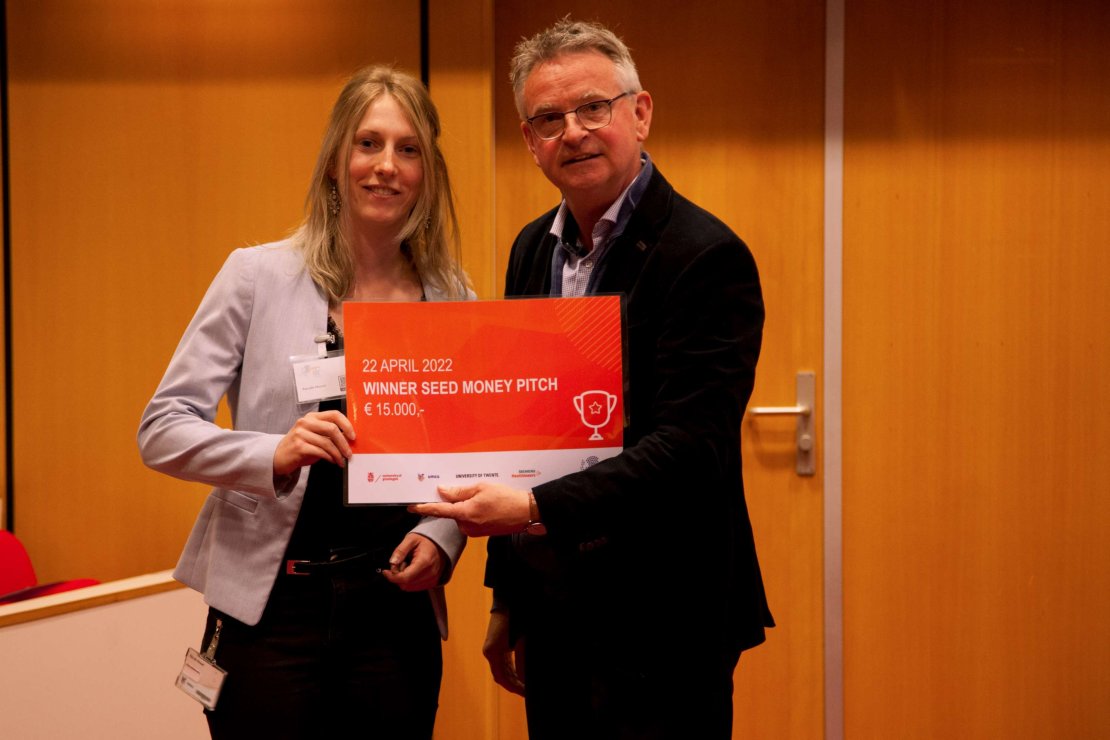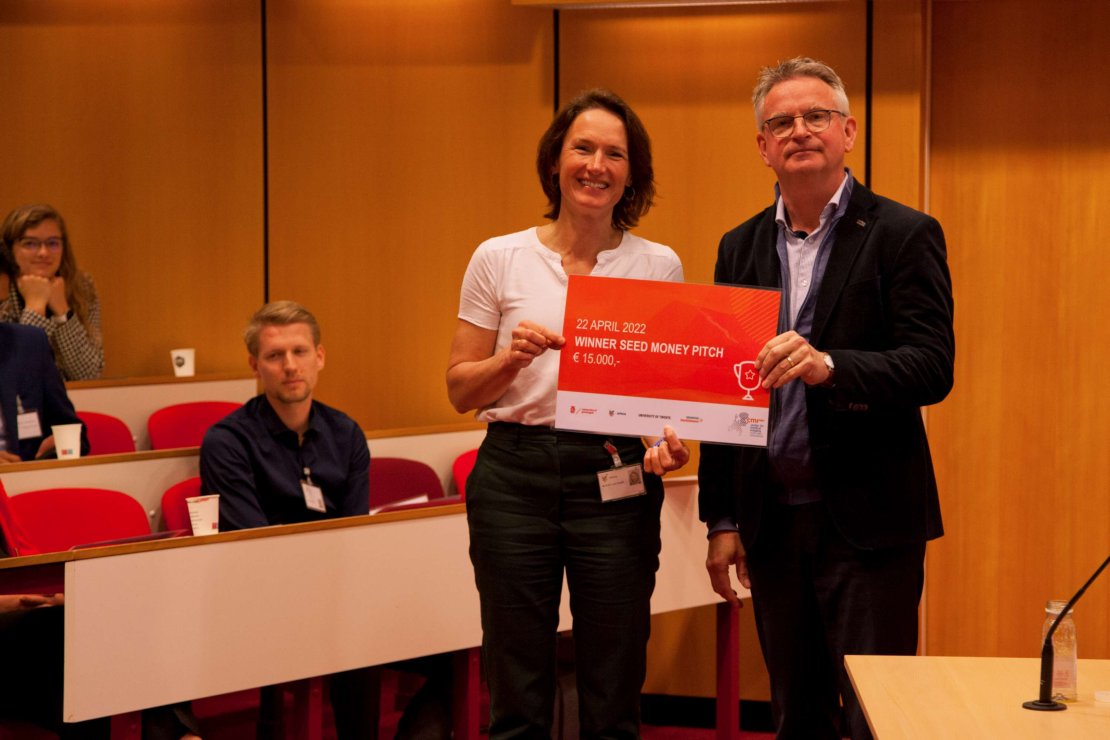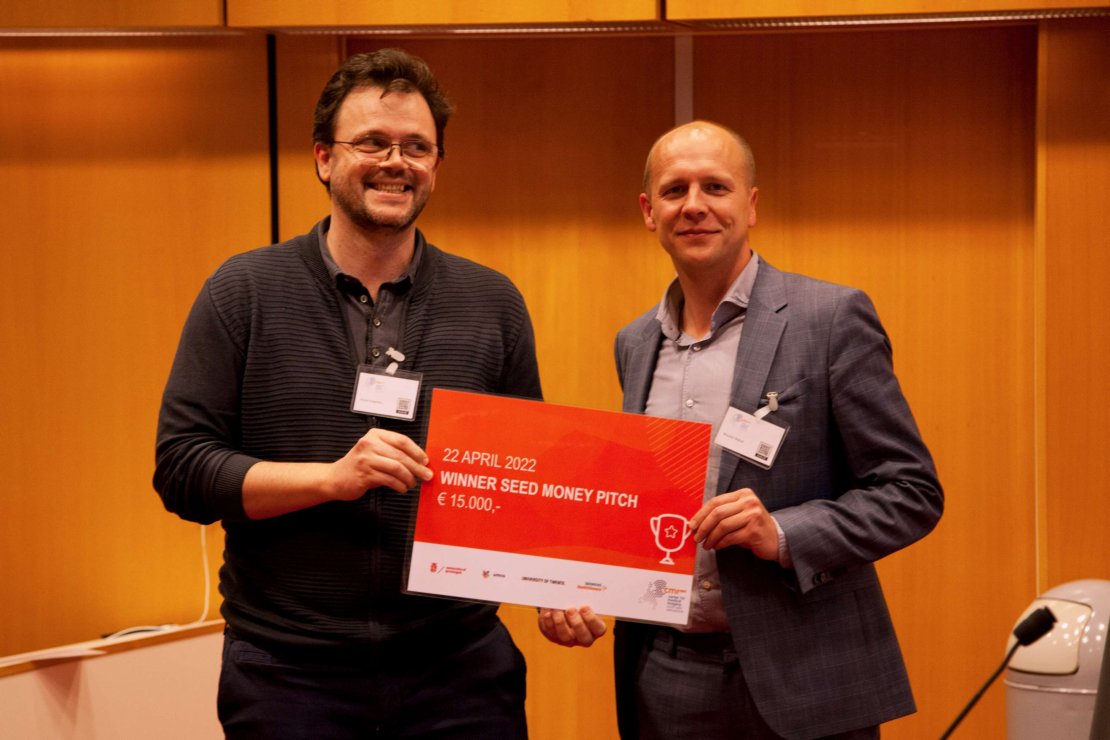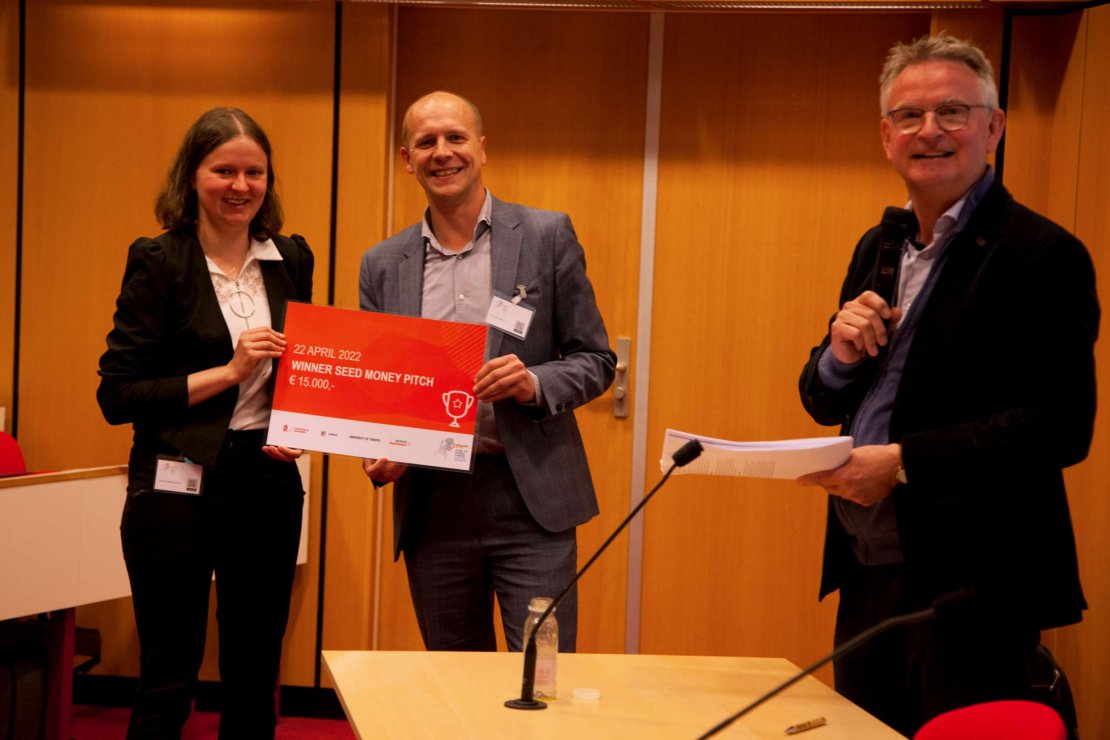CMI-NEN Symposium
On Friday 22 April, the Center for Medical Imaging North-East Netherlands (CMI-NEN) symposium was one of the first major physical meetings held at the UMCG. CMI-NEN is a consortium consisting of the University of Twente, RUG/UMCG and Siemens Healthineers. CMI-NEN focuses on 4 research areas: Medical (molecular) Imaging, Image-guided intervention, Data Science, and Health Technology Assessment (HTA). CMI-NEN simulates developments and validates new medical imaging and diagnostic techniques. In addition, it uses artificial intelligence (AI) and HTA to determine effectiveness in healthcare.
Nearly 100 participants had registered for the symposium and this took place in the "Rode zaal" of the UMCG. The morning program consisted of expert speakers in the CMI-NEN field, sharing information about the TechMed Centre in Twente, AI in medical imaging, experiences with the new total body PET (TBPET) within the MIC, sharing personal experiences with large European grants, an overview of biomaterials for imaging and therapy with an explanation of the role of Health Technology Research & Innovation Cluster (HTRIC). After lunch a tour of the NGMB department followed. The participants were informed about TBPET (Joyce van Sluis) GronSai (Janine Doorduin) and the production of PET radiopharmaceuticals (Gert Luurtsema). Simultaneously, projects on surgical-related medical imaging were demonstrated in the Blauwe Patio (Jean-Paul de Vries and Richte Schuurmann).
The afternoon program consisted of a large series of 12 short presentations (3 minutes + 2 minutes discussion) divided over the 4 research areas. This was presented by researchers from Groningen and Twente. The 2nd session of short presentations consisted of 8 selected research proposals submitted for the CMI-NEN seed-money awards. Each proposal concerned a collaborative project between Groningen, UTwente and Siemens Healthineers. These proposals were favored in advance by the CMI-NEN committee and the final score was determined by the final presentations of the 8 participants. A UMCG-RUG/UTwente/Siemens jury was available to appoint the 4 winners. The 4 winners each received 15,000 euros as a booster for their research project. For Imaging section the winner was Pascalle Mossel (Heart-on-chip to measure cardiac P-glycoprotein function using (18F)MC225 and PET imaging), for Image-guided intervention Giulio Dagnino (cooPerative smaRt cOnTrol for Endovascular robots (PROTEUS)), for HTA Thea van Asselt (Fast-MRI in prostate cancer: determining the broader benefits) and finally for the Data Science section Elina Thibeau-Sutre (AI-SURGE: Towards personalized AI-based treatment selection in colorectal cancer surgery).
The day ended with a matchmaking drink & snack to give everyone the opportunity to find common ground on joint research projects.
We look back on a very successful symposium and the next CMI-NEN symposium is already planned for next spring, but then in Twente!









